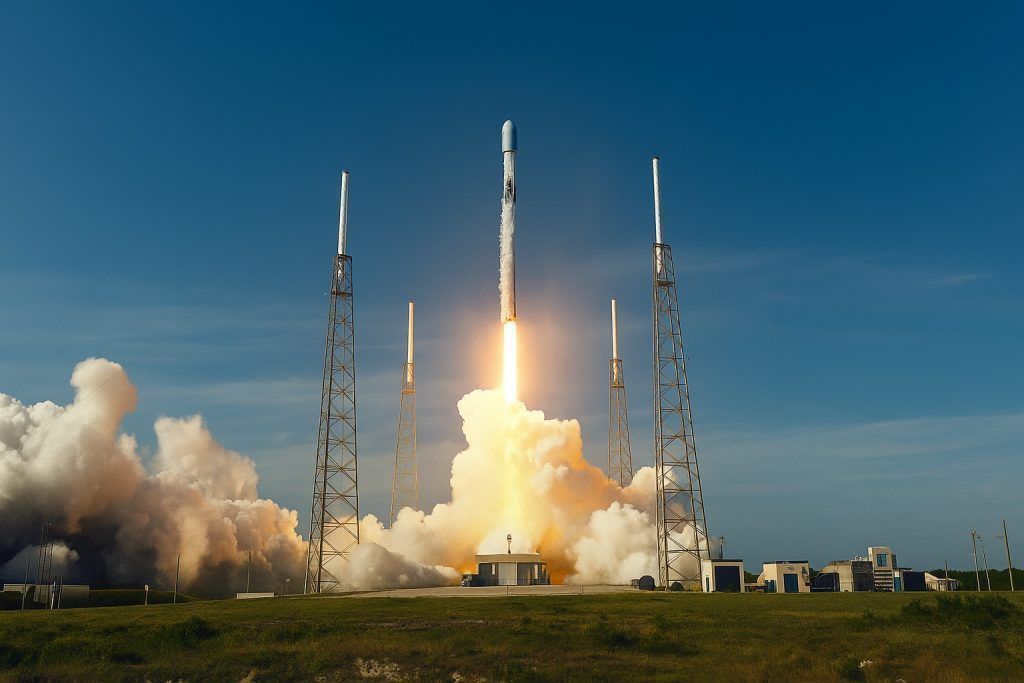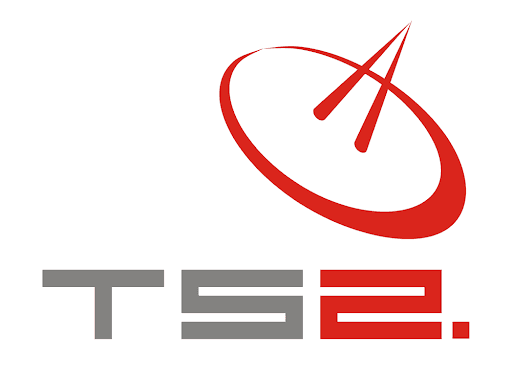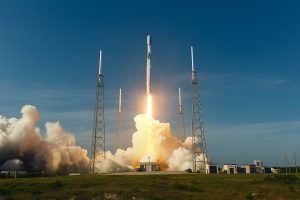Latest Satellite News & Insights 27.06.2025

NASA’s New SLS Booster Test Ends in Nozzle Failure During BOLE Program Trial
NASA’s first test of the BOLE solid rocket booster for the SLS ended with a dramatic nozzle failure. The new booster, developed by Northrop Grumman, features lighter carbon-fiber cases and updated controls, but suffered a structural burn-through, highlighting challenges in advancing solid rocket technology for future Artemis missions.
Continue reading on arstechnica.com
OSHA Investigates SpaceX Crane Collapse at Starbase, Texas
A crane collapse at SpaceX’s Starbase facility in Texas is under OSHA investigation. The incident, captured on a YouTube livestream, follows recent Starship Super Heavy mishaps. SpaceX’s workplace safety record and regulatory oversight are under scrutiny, potentially impacting its NASA contracts and future space missions.
Continue reading on cnbc.com
KazSat-3: Kazakhstan’s Satellite Fleet to Shrink to One
Kazakhstan will reduce its national satellite constellation to a single spacecraft, with KazSat-3 as the sole operational satellite after KazSat-2’s retirement. The upcoming KazSat-3R supplier will be chosen via a tender by 2027. The shift reflects growing fiber-optic networks and competition from global satellite operators like Starlink and OneWeb.
Continue reading on comnews.ru
SDA Achieves Record Satellite Activation Time with Dragoon, Eyes Autonomous Functions
The Space Development Agency (SDA) has activated its first Tranche 1 satellite, Dragoon, in under a week after launch on a SpaceX Falcon 9. Built by York Space Systems, Dragoon validates rapid deployment and aims for future autonomous, self-healing satellite networks to enhance defense capabilities and real-time data fusion in space.
Continue reading on meritalk.com
ESA Biomass Satellite Reveals Unseen Earth Landscapes
ESA’s new Biomass satellite delivers groundbreaking radar images, penetrating dense forests, glaciers, and deserts. Its unique P-band radar unveils Earth’s carbon stocks and ecosystem details previously invisible to optical satellites, offering scientists revolutionary data on forests, wetlands, and even desert geology. Early images from Bolivia, the Amazon, Indonesia, and Gabon highlight its transformative capabilities.
Continue reading on newsinfo.ru
Sheinbaum Clarifies Mexican Satellite Will Not Be Named After AMLO
President Claudia Sheinbaum addressed rumors about naming Mexico’s planned connectivity satellite after former President López Obrador (AMLO). She clarified that the satellite, intended to expand internet access, will not bear his name, emphasizing its national significance and adherence to international space policy.
Continue reading on marca.com
How Satellite Data Revolutionizes Global Air Traffic Tracking
Satellite-based ADS-B and Earth observation imagery now enable near real-time, global air traffic tracking, overcoming radar blind spots over oceans and remote areas. These space technologies enhance flight safety, efficiency, and environmental monitoring, allowing authorities and pilots to make better decisions and optimize routes, saving fuel and reducing CO₂ emissions.
Continue reading on travelradar.aero
NOAA to Suspend Crucial DMSP Satellite Data for Hurricane Tracking
The U.S. government will permanently end the use of Defense Meteorological Satellite Program (DMSP) data, a move experts warn will severely impact hurricane tracking and early detection of storm intensification. DMSP satellites provide about 50% of U.S. microwave weather data, vital for accurate forecasts during a busy hurricane season.
Continue reading on nola.com
Elon Musk Uses Starlink Satellites in Israel-Iran Conflict
Elon Musk is leveraging his Starlink satellite constellation to provide internet access over Iran, bypassing government censorship during the Israel-Iran conflict. This move highlights the strategic power of satellite internet in modern warfare and the challenges authoritarian regimes face in restricting digital communications.
Continue reading on futura-sciences.com
Xona Secures $92 Million to Advance Pulsar Satellite Navigation Constellation
Xona, a satellite navigation startup, raised $92 million in Series B funding, plus a $20 million SpaceWERX award. Xona is developing the Pulsar satellite constellation in LEO for highly accurate, secure, and resilient navigation services, aiming for centimeter-level precision and robust performance in GPS-challenged environments.
Continue reading on satellitetoday.com
NASA Confirms Meteorite Detected by Satellites Over Southeastern U.S.
A probable meteorite streaked across Southeastern U.S. skies, landing near Blacksville, Georgia. NASA and NOAA GOES satellites detected the fireball, with multiple radars and eyewitnesses confirming the event. The meteorite, over a ton in weight, created a visible fireball and sonic booms, showcasing the role of satellite technology in tracking space objects.
Continue reading on wyff4.com
Pentagon Evaluates SpaceX Starshield for Space Force Satellite Program
The Pentagon is pausing funding for the Space Force’s Proliferated Warfighter Space Architecture (PWSA) in FY2026 to assess if SpaceX’s Starshield satellites can deliver secure communications and missile tracking at lower cost. This review could affect procurement of up to 140 satellites for the program’s next phase.
Continue reading on spacenews.com
Space Memorial Capsule Carrying Human Remains Lost After Ocean Crash
A SpaceX Falcon 9 launched the Nyx capsule for The Exploration Company and Celestis Memorial Spaceflights, carrying human remains for a memorial service. The capsule suffered a parachute failure during reentry, crashing into the Pacific Ocean and dispersing its contents, resulting in a partial mission success.
Continue reading on space.com
Mysterious Fireball Over Southern US May Be Space Debris or Meteorite
A mysterious fireball streaked across the skies of Georgia, South Carolina, and Tennessee, prompting over 130 reports. Authorities are investigating whether it was a meteorite, space debris, or satellite fragment. The object reportedly damaged a home near Atlanta. Scientists are analyzing evidence to determine its origin.
Continue reading on nytimes.com
Scientists Identify Amazonis Planitia as Prime Mars Settlement Site Due to Shallow Ice
A team led by Erica Luzzi has pinpointed Amazonis Planitia on Mars as an ideal spot for future human settlers, thanks to shallow subsurface ice. This discovery supports in situ resource utilization, offering water for life support and fuel, and opens new avenues for studying Mars’ habitability and past life.
Continue reading on dailygalaxy.com
Fireball Over Southeast US Likely a Meteor, Detected by Satellite
A fireball, possibly a meteor, was seen over the Southeast US, with sightings in South Carolina, Virginia, and Georgia. The National Weather Service detected the event using satellite-based lightning detection, confirming its presence in the region. Officials suggest more such events could occur soon.
Continue reading on nypost.com
Large Fireball (Bolide) Observed Over Southeastern US Skies
A large fireball, identified as a bolide, was seen streaking across the skies of Georgia, South Carolina, and Tennessee. The American Meteor Society received multiple reports and videos of the rare event, which produced a sonic boom as it traveled downward.
Continue reading on bbc.com








